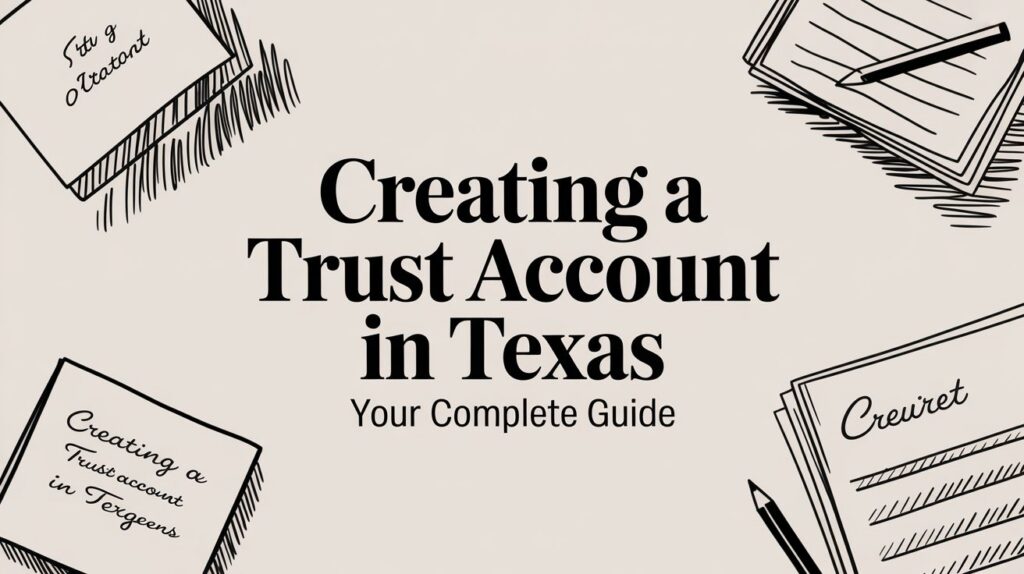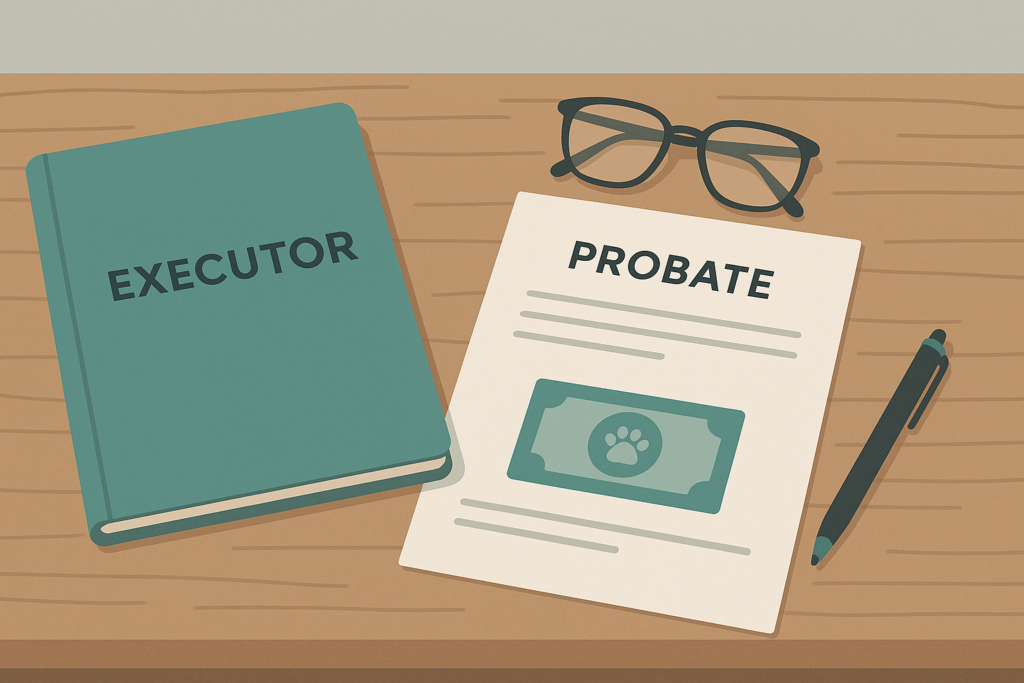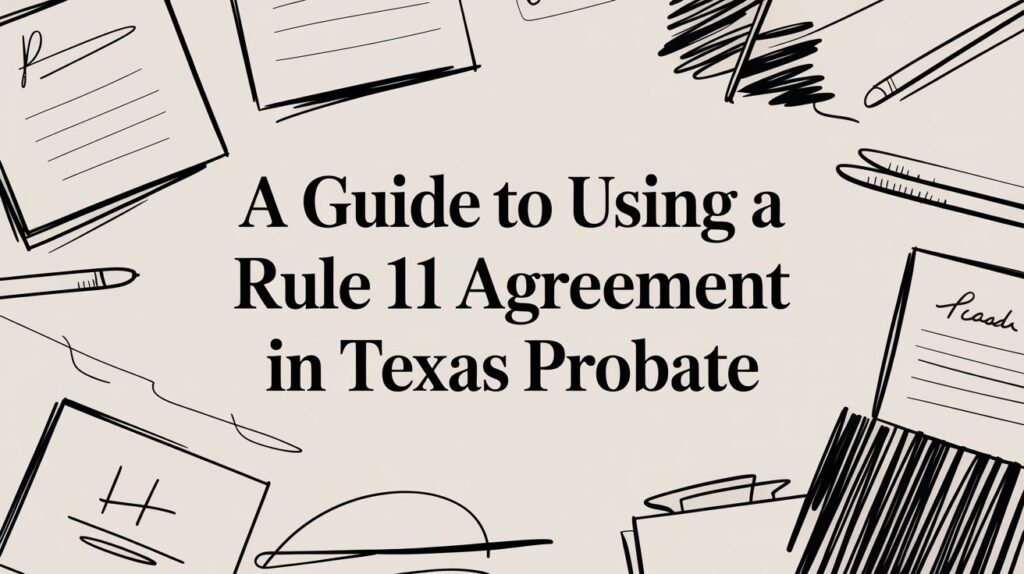Probate is the legal process of administering the estate of a deceased person. It often involves various complexities and has the potential for disputes among family members or other beneficiaries. These disputes can arise due to disagreements over the distribution of assets, interpretation of the will, or conflicts among heirs. In Texas, resolving such disputes through litigation can be time-consuming, emotionally draining, and costly for all parties involved. Mediation offers a constructive and cost-effective alternative to litigation in resolving probate disputes. As a voluntary and confidential process, mediation empowers parties to engage in open dialogue. This helps identify underlying interests and collaboratively explore solutions that meet their needs and interests. In probate disputes, mediation allows families to preserve relationships, maintain privacy, and achieve timely resolutions.
A skilled mediator is pivotal in facilitating productive discussions, fostering mutual understanding, and guiding parties toward mutually acceptable agreements. With a nuanced understanding of Texas probate laws and a keen sensitivity to family dynamics, a mediator can create a supportive environment where parties feel heard, respected, and empowered to work towards resolving their differences. By leveraging effective communication techniques and legal expertise, the mediator helps navigate complex legal issues while addressing emotional tensions with empathy and professionalism. In this essay, we will explore the significance of mediating probate disputes in Texas, examining the benefits of mediation, the role of a skilled mediator, and the key considerations for navigating complex family dynamics and legalities with sensitivity and skill.

Probate Disputes in Texas:
Probate disputes in Texas can stem from various sources, each with unique challenges and complexities. Understanding these sources is crucial for addressing them through mediation. Challenges to the validity of a will, disagreements about the interpretation of a will’s provisions, allegations of breach of fiduciary duty by the executor or administrator, and family conflicts regarding the distribution of assets are common sources of disputes.
Challenges to the validity of a will can lead to prolonged legal battles over its legitimacy and rightful beneficiaries. Disagreements about the will’s interpretation can also lead to disputes, especially over terms outlined in the will. Allegations of breach of fiduciary duty by the executor or administrator can trigger disputes among beneficiaries and result in legal actions to hold the fiduciary accountable.
Family conflicts regarding asset distribution can escalate during the probate process. The potential financial and emotional toll of probate litigation on families cannot be overstated. Lengthy court battles can deplete estate assets, delay inheritance distribution, and exacerbate tensions among family members. Meditation is a preferred approach for resolving probate disputes in Texas. It can mitigate the financial and emotional burdens associated with litigation while promoting effective conflict resolution.
The Role of a Mediator in Texas Probate Disputes

A mediator plays a crucial role in facilitating communication, fostering collaboration, and guiding parties towards mutually acceptable resolutions in probate disputes in Texas. Unlike a judge or arbitrator, a mediator does not impose decisions but instead serves as a neutral facilitator, empowering parties to engage in constructive dialogue and explore creative solutions that address their underlying interests and concerns. The mediator acts as a bridge between parties, creating a safe and respectful environment for open communication. Through active listening and empathetic understanding, the mediator helps parties express their perspectives, clarify misunderstandings, and identify common ground. By facilitating constructive dialogue and negotiation, the mediator empowers parties to work together towards finding mutually beneficial solutions to their probate disputes.
Key Qualities of a Successful Texas Probate Mediator:
Neutrality and Impartiality towards all Parties
A successful mediator maintains neutrality and impartiality towards all parties involved in the probate dispute. By remaining unbiased and non-judgmental, the mediator fosters trust and confidence among the parties, creating an atmosphere conducive to open communication and collaborative problem-solving.
Strong Understanding of Texas Probate Law and Procedures
A competent mediator possesses a comprehensive understanding of Texas probate law and procedures relevant to the dispute at hand. This knowledge enables the mediator to provide accurate legal information, clarify misconceptions, and guide parties towards solutions that are legally sound and compliant with applicable laws and regulations.
Excellent Communication and Facilitation Skills
Effective communication and facilitation skills are essential for a mediator to manage difficult conversations, navigate emotional tensions, and maintain a productive dialogue among parties. The mediator employs active listening, empathy, and non-verbal communication techniques to foster understanding, manage conflicts, and encourage constructive problem-solving.
Experience in Mediating Family Disputes and Navigating Complex Family Dynamics
Given the often familial nature of probate disputes, a skilled mediator should have experience in mediating family conflicts and navigating complex family dynamics. This includes addressing underlying emotions, managing power imbalances, and facilitating resolution strategies that prioritize preserving relationships and promoting mutual respect among family members.
By embodying these key qualities and leveraging their expertise, a mediator plays a pivotal role in guiding parties through the probate mediation process in Texas. Through their facilitation and guidance, the mediator empowers parties to achieve mutually satisfactory outcomes, mitigate conflicts, and preserve familial relationships amidst the challenges of probate disputes.
The Texas Probate Mediation Process
The mediation process begins with an initial consultation where the mediator explains the process, establishes ground rules, and allows parties to express their concerns and goals. Following this, the mediator schedules joint mediation sessions where all parties engage in facilitated discussions. The mediator guides the conversation, facilitates communication, and helps identify underlying interests and common ground. Through active listening and empathy, the mediator encourages parties to explore potential solutions and work towards a mutually agreeable resolution.
As the mediation progresses, the mediator may introduce various options for resolving the probate dispute, such as compromise agreements or alternative asset distributions. The mediator assists parties in evaluating the feasibility and potential outcomes of each option, encouraging collaborative problem-solving and negotiation to find a resolution that meets their needs and interests.
If successful, parties involved in the probate dispute reach a mutually satisfactory agreement with the mediator’s assistance. The agreement may cover various aspects of the dispute, such as asset distribution or estate administration procedures. The mediator facilitates drafting a written agreement, a binding contract documenting the resolution reached through mediation. By following these typical steps in the Texas probate mediation process, parties involved in probate disputes can effectively engage in collaborative problem-solving, explore creative solutions, and reach mutually agreeable resolutions with the guidance and assistance of a skilled mediator. This process offers parties a constructive and amicable alternative to litigation, allowing them to preserve relationships, maintain privacy, and achieve timely resolutions in the probate administration process.
Benefits of Mediation in Texas Probate Disputes:
Choosing mediation over litigation offers several advantages, making it a preferred method for resolving probate disputes in Texas:
- Mediation is generally more cost-effective than probate litigation. By avoiding lengthy court proceedings, attorney fees, and other expenses, parties can save significant costs for resolving probate disputes.
- It can often resolve probate disputes more quickly than going to court. Parties have greater flexibility in scheduling mediation sessions. The process allows for more efficient communication and negotiation, leading to timelier resolutions than the often lengthy litigation process.
- It promotes open communication and constructive dialogue among parties, helping to preserve family relationships amidst probate disputes. By fostering understanding, empathy, and collaborative problem-solving, mediation can mitigate tensions and avoid further conflicts arising from adversarial litigation.
- Mediation gives parties more control over the outcome of probate disputes than a court decision. In mediation, parties actively participate in decision-making. They identify their priorities and interests and work together to craft mutually agreeable solutions that address their needs and concerns.
- Mediation proceedings are generally confidential. They provide parties with a private and discreet forum to discuss sensitive issues related to the probate dispute. Unlike court proceedings, which are a matter of public record, mediation allows parties to maintain confidentiality and privacy regarding the details of their dispute and the terms of any agreements reached.
By leveraging these benefits, parties involved in probate disputes in Texas can opt for mediation as an alternative to litigation. This enables them to achieve timely resolutions, preserve family relationships, and maintain control over the outcome while minimizing costs and maintaining confidentiality.

Considerations for Choosing a Texas Probate Mediator
When choosing a mediator for probate disputes in Texas, it is crucial to consider several factors. These include the mediator’s experience and qualifications, their neutral reputation, their communication style, their cost and fees, their availability and accessibility, and their track record of success. A mediator with significant experience in Texas probate law and family dispute resolution should be chosen. They should have relevant qualifications, such as certification or specific training in probate mediation. A mediator with a neutral reputation is essential. They should remain unbiased and not have conflicts of interest that may compromise their ability to facilitate fair and impartial proceedings.
A mediator’s communication style should align with the parties’ needs and preferences. They should be able to effectively manage difficult conversations, navigate emotional tensions, and foster productive dialogue.
The mediator’s fees should be affordable and reasonable, considering the complexity of the probate dispute. They should also be available to accommodate all parties’ scheduling needs and be willing to address any concerns or questions. In conclusion, by carefully considering these factors, parties can choose a mediator with the necessary skills, experience, and qualities to facilitate the mediation process and guide them toward a mutually satisfactory resolution of their probate dispute.








